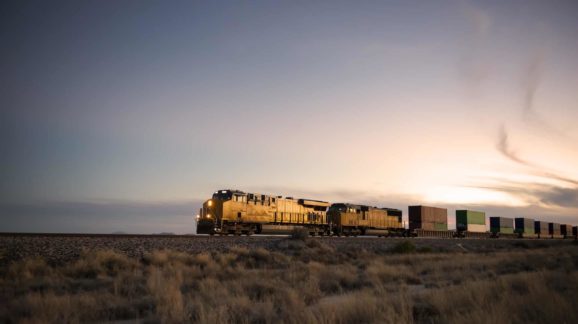Rail merger does not create monopoly

Union Pacific has proposed buying Norfolk Southern in what would be the largest railroad merger in history. Regulators have not yet approved the merger. The New York Times paints a scary picture for how the deal would affect competition:
The merger would create the United States’ first coast-to-coast rail network and span some 50,000 miles across 43 states. But the deal would put around two-fifths of rail freight in the hands of one company, raising fears that it would reduce competition in a crucial industry.
This is an example of what I call the relevant market fallacy, which is the tendency to define markets too narrowly in order to make a company look more dominant than it really is.
One company controlling about two-fifths of rail freight might sound like an unstoppable juggernaut. It is not, because the freight market extends beyond just rail. Even the biggest rail carriers must still compete with trucking, maritime shipping, and air freight.
UPS and Federal Express, for example, have a combined market capitalization of more than $120 billion, far larger than the $86 billion Union Pacific-Norfolk Southern merger. If the two rail carriers merge, it is to keep up with competition from trucks, cargo ships, and airplanes, as well as other rail carriers. Freight competition is alive and well on land, sea, and in the air.
People concerned with freight competition have a lot of policies they should support. One is repealing the Jones Act, which has all but destroyed America’s shipbuilding industry. A vibrant maritime shipping industry would put additional competitive pressure on the merged Union Pacific, as well as on trucking, air shipping, and pipelines.
My CEI colleague Paige Lambermont and I wrote about Jones Act reform here. My CEI colleague Alex Reinauer wrote about another instance of the relevant market fallacy here. My CEI colleague Wayne Crews and I wrote a paper about antitrust policy’s fatal flaws.